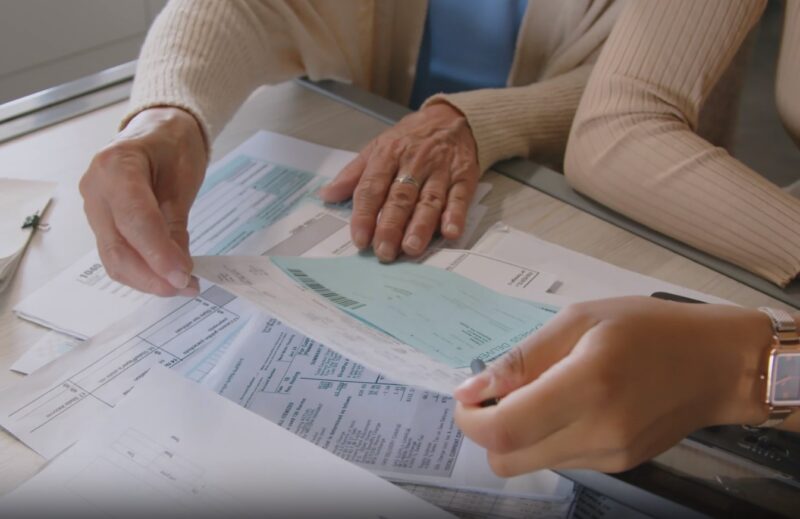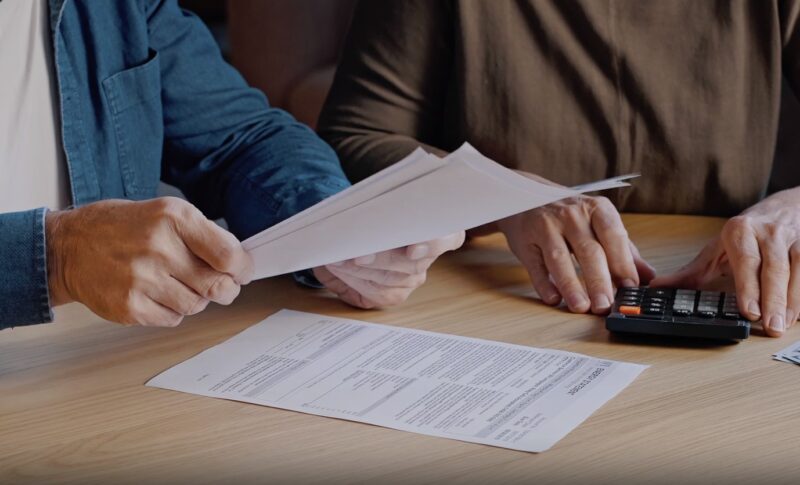Property taxes are annual or semi-annual payments that homeowners make to the local government based on the assessed value of their land and buildings. These taxes are used to fund public services, such as schools, roads, parks, and police. Paying them on time is not only a civic duty, but also a legal obligation.
Failing to do so can have serious consequences for homeowners, such as losing their ownership or facing legal action. In this article, we will explain how long you can be delinquent on these taxes and what happens if you don’t pay them.
How Long Can You Go Without Paying It?

One of the most common questions that homeowners have is how long they can go without paying before they face any legal action. The answer is not simple, as it depends on several factors, such as the state and local jurisdiction, the amount and frequency of the tax payments, and the policies and procedures of the taxing authority.
According to the National Tax Lien Association, the average time period for a property to become delinquent on its taxes is about three years. However, this can vary significantly from state to state, and even from county to county. For example, in Texas, a it can become delinquent on its taxes as soon as January 31 of the year following the tax year.
In California, it can become delinquent on its taxes if the first installment is not paid by December 10 and the second installment is not paid by April 10 of the same fiscal year. In New York, if the full amount is not paid by the last day of February of the following calendar year. The penalties and interest also vary by state and local jurisdiction.
Some states impose a flat rate of interest, such as 18% per year in New Jersey, while others use a variable rate, such as the federal short-term rate plus 3% in Florida. Some states also charge additional fees, such as late payment penalties, collection costs, or administrative charges.

For example, in Illinois, the owner who fails to pay their taxes by the due date is subject to a penalty of 1.5% per month, plus a $10 publication fee and a $10 redemption fee. In Michigan, the owner who fails to pay their taxes by March 1 of the following year is subject to a 4% administration fee and a 1% interest per month, plus additional fees for tax sale preparation and notification.
It is important for homeowners to be aware of the deadlines and penalties, as they can accumulate quickly and increase the amount of debt they owe. Moreover, this can affect the credit score and reputation of the owner, making it harder for them to obtain loans or mortgages in the future.
Therefore, it is advisable for homeowners to pay this on time, or as soon as possible, to avoid the risks of losing their property or facing legal action. When it comes to those who are planning to buy a new home, it is crucial to learn more about these details.
For instance, you may be attracted by many things in New York, like the Muttontown Country Club, vibrant nightlife, and numerous other things you prefer, but following the instructions related to regular tax payments will save you from any inconveniences in the future.
What Happens If You Don’t Pay At All?

If a property owner fails to pay their property taxes by the due date, they are not only subject to penalties and interest, but also risk losing their property to the taxing authority.
This is because the taxing authority has a lien on the property, which means that it has the right to claim the property as a security for the unpaid debt. The taxing authority can enforce its lien by selling it to recover the amount of taxes, penalties, and interest owed.
There are different types of tax sales that the taxing authority can use to sell the property, depending on the state and local jurisdiction where the property is located. The most common types are tax deed sales and tax lien sales.
- Tax deed sales: The taxing authority sells the full ownership and title of the property to the highest bidder at a public auction. The property owner loses all their rights and interests in the property, and the buyer becomes the new owner. The property owner may or may not have a redemption period, which is a time frame within which they can reclaim their property by paying the full amount of taxes, penalties, interest, and fees, plus the bid price of the buyer.
- Tax lien sales: Officials sells the lien on the property, not the property itself, to the highest bidder at a public auction. The owner retains the ownership and title, but the buyer becomes the lien holder. The buyer can charge interest on the lien, which can be as high as 36% per year in some states. The owner has a redemption period, which is a time frame within which they can redeem their property by paying the full amount of taxes, penalties, interest, and fees, plus the bid price and interest of the buyer.
How Can You Prevent Or Stop A Tax Sale?

There are some ways that they can prevent or stop a tax sale, depending on their situation and the stage of the tax sale process.
- Preventing a tax sale: The best way to prevent a tax sale is to pay the property taxes on time, or as soon as possible, before the tax sale date. However, if a property owner is unable to pay the full amount of taxes, penalties, and interest, they may have some options to negotiate a payment plan or a tax abatement with the taxing authority. A payment plan is an agreement that allows the owner to pay the taxes in installments over a period of time, usually with reduced interest or fees. A tax abatement is a reduction or cancellation of the taxes, penalties, or interest, usually based on certain criteria, such as financial hardship, disability, or error. To request a payment plan or a tax abatement, the property owner should contact the taxing authority as soon as possible and provide the necessary documentation and evidence to support their request.
- Stopping a tax sale: If the owner is unable to prevent a tax sale, they may still have a chance to stop it by redeeming it before the sale. Redeeming means paying the full amount of taxes, penalties, interest, and fees to the taxing authority to clear the debt and remove the lien. The owner has a redemption period, which is a time frame within which they can redeem before the sale. The redemption period varies by state and local jurisdiction, and by the type of tax sale. For example, in Ohio, the owner has a redemption period of one year from the date of the tax lien sale. In Nevada, the owner has a redemption period of 120 days from the date of the tax deed sale.
FAQs
How can I find out how much property taxes I owe and when they are due?
You can find out how much property taxes you owe and when they are due by contacting the taxing authority of your state and local jurisdiction. The taxing authority is usually the county assessor, treasurer, or collector. You can also check your property tax bill, statement, or notice that you receive by mail or online.
How can I appeal or dispute my property tax assessment or bill?
You can appeal or dispute your property tax assessment or bill if you think that it is incorrect or unfair. The process and the deadline for appealing or disputing your property tax assessment or bill vary by state and local jurisdiction. You should contact the taxing authority and follow the instructions and requirements for filing an appeal or a dispute.
How can I lower my property tax bill?
You can lower your property tax bill by applying for a tax exemption, a tax deferral, or a tax relief program that you may qualify for. A tax exemption is a reduction or elimination of your property tax liability based on certain criteria, such as your age, income, disability, or veteran status. A tax deferral is a postponement of your property tax payment until a later date, such as when you sell your property or pass away.
How can I find out if there is a tax sale on my property or a property I am interested in buying?
You can find out if there is a tax sale on your property or a property you are interested in buying by contacting the taxing authority or the tax sale agent of your state and local jurisdiction. The taxing authority or the tax sale agent is usually the county clerk, sheriff, or treasurer.
How can I get a refund or a surplus from a tax sale?
You can get a refund or a surplus from a tax sale if you are the property owner or the lien holder of a property that is subject to a tax sale. A refund is the amount of money that you paid to redeem your property before the sale. A surplus is the amount of money that exceeds the taxes, penalties, interest, and fees owed on the property after the sale.
Summary
You need to pay your annual or semi-annual payments to the local government based on the assessed value of your land and buildings. These payments are used to fund public services, such as schools, roads, parks, and police. If you don’t pay them on time, you may face penalties, interest, and a sale of your land and buildings. The time period, the type, and the consequences of the sale vary by state and local jurisdiction.
